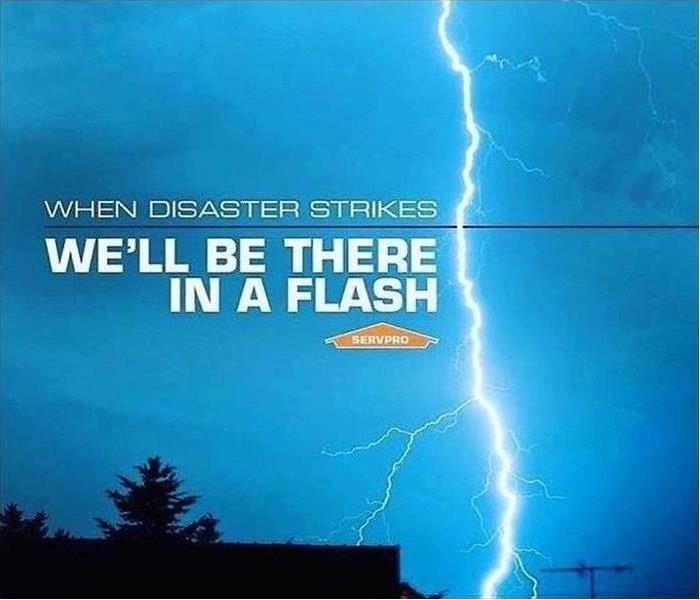Here Comes the Lightning
6/25/2021 (Permalink)
Here Comes the Lightning
As found on StormHighway.com,
A cloud-to-ground lightning bolt's main objective is to find the path of least resistance from the cloud to deep into the ground. Most homes are filled with many potential routes for lightning to follow in their journey. This can include gas and water pipes, electric lines, phone lines, cable TV or internet lines, gutters, downspouts, metal window frames - anything conductive in a house is 'fair game' for the lightning to follow. This can be very dangerous!
Lightning passing through a house can 'branch' and utilize more than just one path to ground at a time. It can also jump through the air from one conductive path to another in what is called a side flash. For example, lightning may first connect to electric lines in the attic of a house, then jump to better-grounded water pipes on the first or second floor. Lightning can connect to gutters, then jump to a window frame as a 'stepping stone' to the electrical system or water pipes. All (or part) of bolts have even been seen jumping from wall outlets to sink faucets and even jumping across rooms!
What is the biggest danger lightning poses to a house? Fire! Wood and other flammable building materials can easily be ignited anywhere an exposed lightning channel comes in contact with them. Most commonly, lightning starts a fire in the attic or roof of a house, as the channel usually has to pass through some of the structural material in the roof before it can reach a more conductive path such as wiring or pipes. When lightning current travels through wires, it will commonly burn them up - presenting a fire ignition hazard anywhere along the affected circuits.
SERVPRO® of Tuscaloosa helps with water and fire cleanup and restoration. Give us a call at 205-553-8377 today!






 24/7 Emergency Service
24/7 Emergency Service
